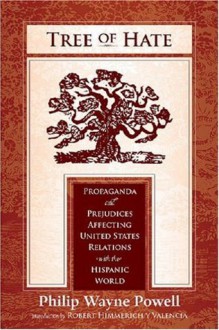
The invasion of South Korea by North Korean forces in June 1950 posed a multitude of challenges to the United States. Among these, one of the most difficult and persistent faced by the Truman administration was that of how to present the war to the American people. What might seem to be a fairly straightforward matter was in fact a far more complex problem, riven as it was by issues of domestic politics and overshadowed by the broader context of the Cold War. Steven Casey’s book provides a detailed look at the problems the Truman administration faced, how they changed over the course of the war, and how they endeavored to navigate around or surmount the difficulties before them.
These problems emerged practically from the moment the president and the American people first learned of the invasion. From the start Truman sought a restrained rhetorical response to the conflict, out of a concern that intemperate language might exacerbate the Cold War. This decision, however, gave an opening to Truman’s Republican opponents in Congress. Still smarting from Truman’s victory in the 1948 presidential election, they took advantage of his failure to define the conflict early on by using it to lambaste his administration’s handling of foreign policy.
Their criticisms were sharpened in the short term by the course of events, as the poor showing of the first American troops thrown into combat served to underline Republican arguments about Truman’s failings as president. Here Casey turns his attention to the other part of the story, the type and nature of the information flooding out from the Korean peninsula. The reporters rushed to cover the war faced a chaotic situation off the battlefield as well as on it, thanks in no small measure to General Douglas MacArthur’s refusal at first to impose any sort of censorship on the articles being sent out. This left the correspondents open to criticism for indiscretions in their reporting, and soon they were at the forefront of calls for such guidelines. Yet when censorship was finally imposed, its strictness proved to be more restrictive than they bargained for fueling criticisms that MacArthur’s public information officers were trying to withhold information that made their superior look bad.
MacArthur’s dismissal as supreme commander in April 1951 had significant implications for both levels of public relations. His successor, Matthew Ridgway, proved far more diplomatic in his handling of the media, a task made simpler by the stabilization of the battlefront by the summer. For Truman, however, MacArthur’s return to the United States heightened criticisms of his administration’s handling of the war still further. Yet this proved in some respects to be a blessing in disguise, as it prompted his administration to provide a more forceful defense of their handling of the war. This plus the changing nature of the conflict finally pushed Truman into making the vigorous case for the war that had been absent for so long, only to find the static, drawn-out nature of the conflict limited the impact of his efforts. His successor as president, Dwight Eisenhower, faced similar public relations problems and repeated some of Truman’s early mistakes, but the death of the Soviet leader Josef Stalin in March 1953 was quickly followed by concessions that made an armistice possible four months later.
Casey’s book is a valuable study of an often overlooked aspect of war. With it he chronicles a government as it transitioned away from the assumptions involved in rallying public opinion in a “total war” and towards the challenges involved in doing so for the more limited conflicts that the U.S. has fought since World War II. Though it may not be as exciting as the subtitle implies, with only minimal coverage of the broader cultural propaganda tied to the war, it definitely rewards the time spent reading it. This is a book that should be read by anyone interested in the history of the Korean War or in the broader topic of how governments manage the media and rally public opinion to wage war in our world today.

 Log in with Facebook
Log in with Facebook 









